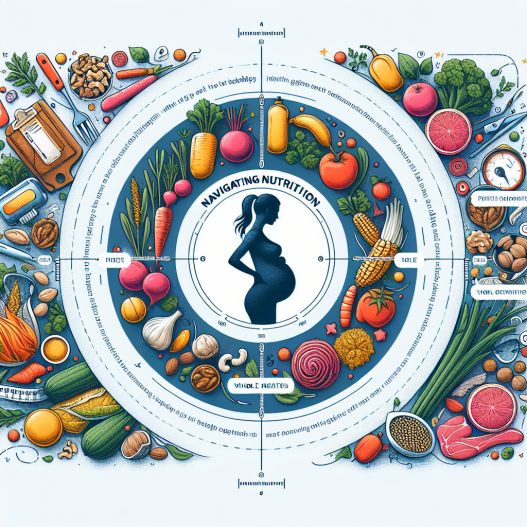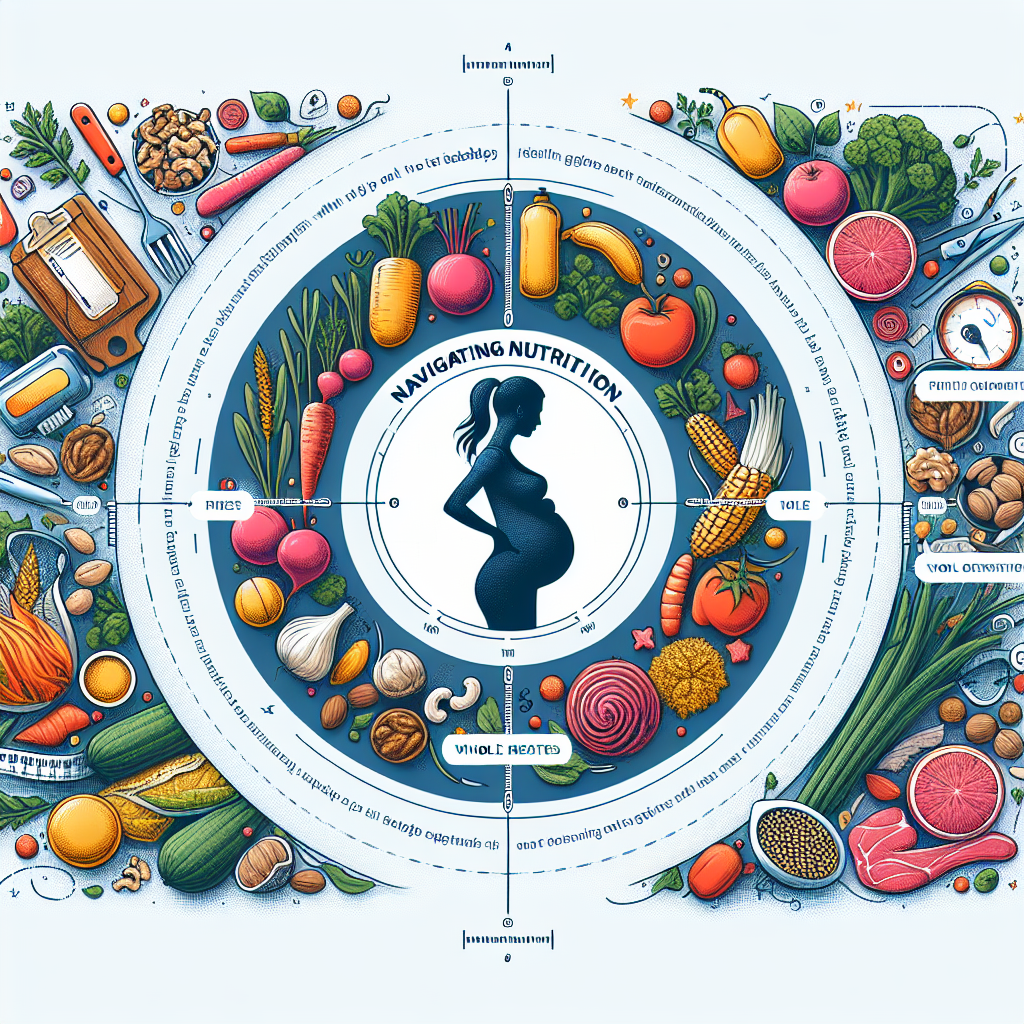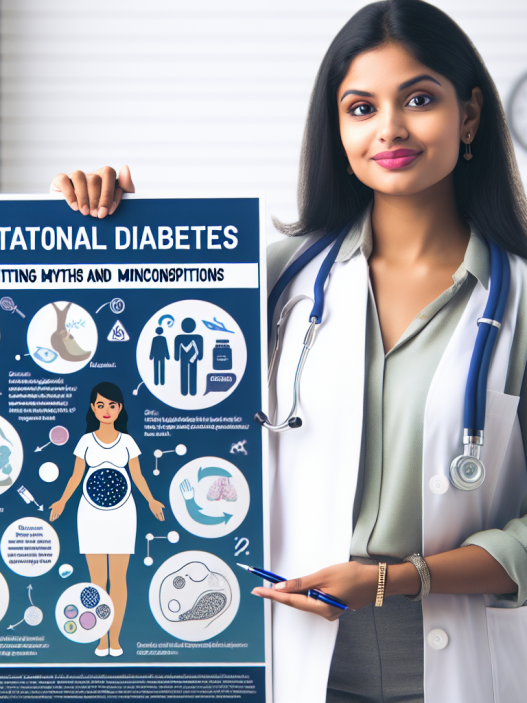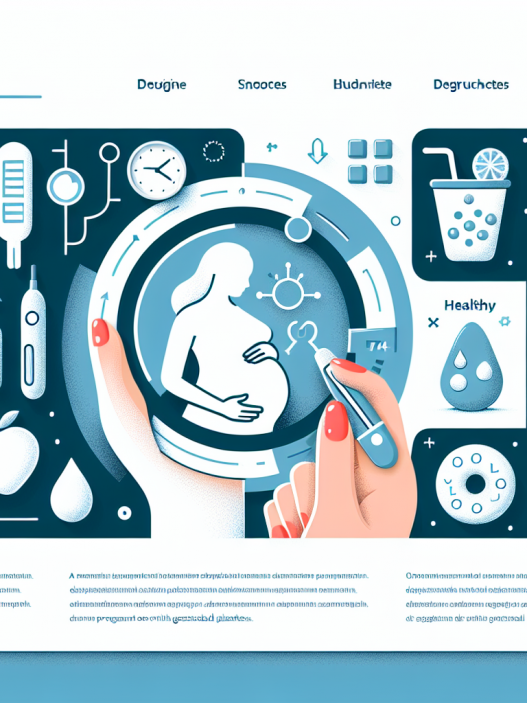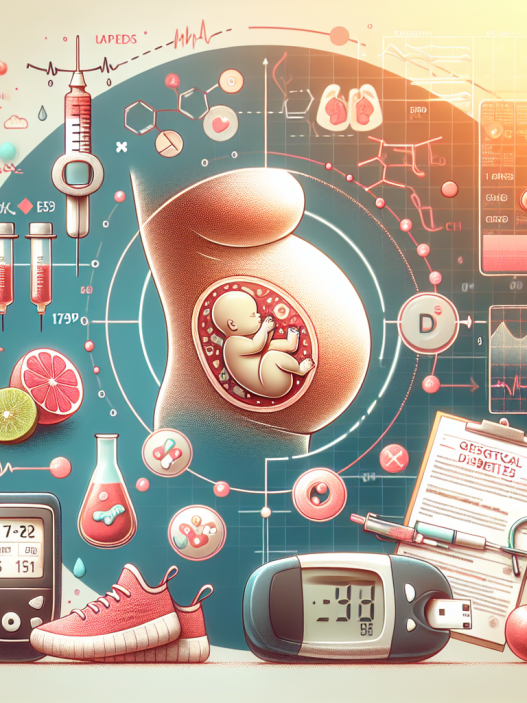[ad_1]
Gestational diabetes can be a challenging condition for expectant mothers, requiring careful attention to dietary choices to maintain optimal blood sugar levels. Understanding what to eat with gestational diabetes is crucial for managing this condition effectively while promoting the health and well-being of both mother and baby. In this comprehensive guide, we’ll delve into practical nutritional strategies, helpful meal planning tips, and the best food options that align with the needs of those navigating gestational diabetes.
Understanding Gestational Diabetes: The Importance of Nutrition
Gestational diabetes occurs during pregnancy when the body cannot produce enough insulin to control blood sugar levels effectively. Nutritional management is a key component in preventing excessive weight gain, reducing the risk of complications for both the mother and baby, and ensuring a healthy pregnancy. The right dietary choices can stabilize blood sugar levels and provide essential nutrients for both mother and child. Mothers with gestational diabetes need to be aware of how different food types affect their glucose levels and learn to navigate their nutrition accordingly.
Nutrition is the cornerstone of managing gestational diabetes. A well-structured eating plan can help regulate blood sugar, promote healthy weight gain, and provide adequate energy. It’s important to focus on consuming whole, nutrient-dense foods while avoiding high-sugar and refined carbohydrate options. As we delve deeper into this topic, we’ll explore essential food groups, meal planning strategies, and practical tips for navigating nutrition during pregnancy with gestational diabetes.
Foods to Include in Your Diet for Gestational Diabetes
When managing gestational diabetes, selecting the right foods can make a significant difference in maintaining healthy blood sugar levels. Emphasizing a balanced diet that includes a variety of whole foods can ensure that you and your baby receive essential nutrients. Make it a point to include the following food categories:
-
Whole Grains: Whole grains like quinoa, brown rice, and whole wheat bread are excellent choices due to their high fiber content, which helps to slow the absorption of sugar into the bloodstream. These complex carbohydrates provide steady energy and should be incorporated into meals to support healthy glucose levels. Limit refined grains, as they can lead to quick spikes in blood sugar.
-
Non-Starchy Vegetables: Vegetables such as spinach, broccoli, cauliflower, and bell peppers are packed with vitamins, minerals, and antioxidants. These nutrient-dense foods are low in calories and carbohydrates, making them ideal for filling your plate while managing blood sugar. Aim to make vegetables the foundation of your meals, ensuring you get enough fiber and nutrients.
-
Lean Proteins: Incorporating lean protein sources like chicken, turkey, fish, eggs, legumes, and tofu can help maintain satiety and prevent rapid spikes in blood sugar. Protein-rich foods slow digestion and promote stable glucose levels, helping support both mother and baby’s health throughout pregnancy. Aim to include protein in every meal and snack to help keep your energy levels consistent.
- Healthy Fats: Healthy fats such as avocados, nuts, seeds, and olive oil can also be beneficial. These types of fats do not cause blood sugar spikes, unlike unhealthy fats found in processed foods. Including healthy fat sources can enhance satiety and improve nutrient absorption, which is essential for your overall well-being during pregnancy.
Following these food guidelines can help you build a balanced diet that promotes stable blood sugar levels, ensuring you maximize nutrition for both you and your growing baby.
Meal Planning Strategies for Gestational Diabetes
Effective meal planning is a vital tool for managing gestational diabetes and maintaining balanced blood sugar levels. Here are some key strategies to help you plan your meals wisely:
-
Create Balanced Meal Plates: Aim for a balanced plate at every meal, combining protein, healthy fats, fiber-rich carbohydrates, and plenty of vegetables. A good rule of thumb is to fill half the plate with non-starchy vegetables, one-quarter with lean protein, and one-quarter with whole grains or starchy vegetables. This approach helps ensure you get a well-rounded meal that stabilizes blood sugar.
-
Incorporate Snacks Wisely: To avoid spikes and dips in blood sugar, incorporate healthy snacks between meals. Opt for snacks that combine protein, healthy fats, and fiber. For example, pairing apple slices with almond butter or yogurt with berries can help keep blood sugar levels stable while also providing nutrients necessary for pregnancy.
-
Plan Ahead: Taking time to plan meals and snacks for the week can save you from reaching for unhealthy options when you’re hungry or pressed for time. Prepare meals in advance and keep healthy snacks readily available. This approach takes the guesswork out of your dining choices and ensures you always have nutritious options on hand.
- Mind Portion Sizes: Being mindful of portion sizes is critical when managing gestational diabetes. Use measuring cups or a food scale to accurately track your servings, especially of carbohydrate-rich foods. This practice helps prevent overeating and aids in maintaining stable blood sugar levels throughout the day.
By using these meal-planning strategies, you can create a structured eating plan that’s both easy to follow and beneficial for managing gestational diabetes effectively.
Foods to Avoid with Gestational Diabetes
While there are many nutritious options available, it’s just as important to know which foods to avoid in order to keep blood sugar levels in check. Here’s a list of food categories to limit or eliminate:
-
Refined Carbohydrates: Avoid white bread, pastries, white rice, and sugary cereals, as these refined carbohydrates can lead to rapid blood sugar spikes. Instead, choose whole grain alternatives that provide fiber and stabilize blood sugar levels.
-
Sugary Foods and Beverages: Foods high in sugar, including candies, cookies, soda, and sweetened beverages, should be avoided due to their potential for causing sharp increases in blood sugar. Opt for water, herbal teas, or drinks with no added sugars instead to quench your thirst while managing your glucose levels effectively.
-
Processed Foods: Processed foods often contain unhealthy fats, added sugars, and empty calories that can hinder your ability to manage blood sugar effectively. Focus on whole, minimally processed foods that are rich in nutrients and promote overall health.
- Fried Foods: Fried foods are typically high in unhealthy fats and calories, which can contribute to weight gain and negatively affect blood sugar control. Instead of frying, consider grilling, baking, or steaming your meals to maintain nutritional integrity without extra unhealthy fats.
By avoiding these unhealthy food categories, you can more easily maintain stable blood sugar levels and reduce the risk of complications associated with gestational diabetes.
Monitoring Blood Sugar Levels: The Role of Nutrition
Monitoring blood sugar levels is an integral part of managing gestational diabetes, and nutrition plays a critical role in this process. Here are key tips for effectively monitoring your glucose and adjusting your diet accordingly:
-
Document Your Meals: Keeping a food diary can help you track how different foods impact your blood sugar levels. Record your meals and snacks, along with your blood sugar readings after eating. This practice can reveal patterns, helping you identify which foods cause spikes and which keep your levels stable.
-
Know Your Timing: Monitoring blood sugar levels at specific intervals—such as before meals and one to two hours after eating—can provide valuable insights into how your body responds to different foods. This information can guide you in making informed choices about meal composition, portion sizes, and timing.
-
Adjust Nutritional Choices: If you notice that certain foods lead to higher-than-desired blood sugar levels, consider modifying your meals or replacing those foods with healthier options. For example, if a certain type of bread spikes your blood sugar, try switching to a whole grain or sprouted bread option instead.
- Communicate with Your Healthcare Provider: Regular appointments with your healthcare team will be crucial for monitoring your condition. They can provide guidance, tools, and support to help you navigate your dietary choices effectively. Regular check-ins will enable you to make adjustments to your nutrition and lifestyle plan as needed.
By closely monitoring your blood sugar levels and adjusting your nutrition accordingly, you can manage gestational diabetes more effectively and promote a healthier pregnancy.
Support and Resources for Managing Gestational Diabetes
Managing gestational diabetes can sometimes feel overwhelming, but there are ample resources and support networks available. Here are several avenues you can explore:
-
Nutritionists and Dietitians: Seeking help from a registered dietitian who specializes in prenatal nutrition can be incredibly beneficial. They can help you create a personalized meal plan tailored to your needs, taking into account your lifestyle and food preferences.
-
Gestational Diabetes Support Groups: Connecting with other expectant mothers facing similar challenges can provide emotional support and shared strategies for success. Helpful tips, recipe ideas, and encouragement can often be found within support group settings, whether online or in-person.
-
Educational Resources: Many hospitals and healthcare organizations offer educational classes focused on gestational diabetes management. These programs can provide valuable insights into nutrition, blood sugar monitoring, and lifestyle modifications.
- Mobile Apps: There are various mobile apps designed specifically for managing gestational diabetes. These can assist you in tracking your food intake, logging blood sugar readings, and offering nutritional guidance based on your specific needs.
With the right support and resources, managing gestational diabetes can become a more manageable and empowering process.
Conclusion: Empowering Your Journey with Gestational Diabetes
Navigating nutrition with gestational diabetes necessitates a proactive approach to dietary choices and lifestyle modifications. By understanding the foods to include, planning balanced meals, monitoring blood sugar levels, and seeking support, expectant mothers can promote their own health while nurturing their growing babies. Engaging in a healthy lifestyle—characterized by nutrient-dense foods, consistent monitoring, and open communication with healthcare providers—can make a significant difference in the pregnancy experience.
Remember, managing gestational diabetes is not just about restriction; it’s about embracing a balanced approach to eating that empowers you during this unique and exciting time. As you navigate your nutritional journey, prioritize self-compassion, seek out resources, and lean on your support network to ensure the health and happiness of you and your baby. Your commitment to healthy eating can set the foundation for a brighter future—both during pregnancy and beyond.
[ad_2]










